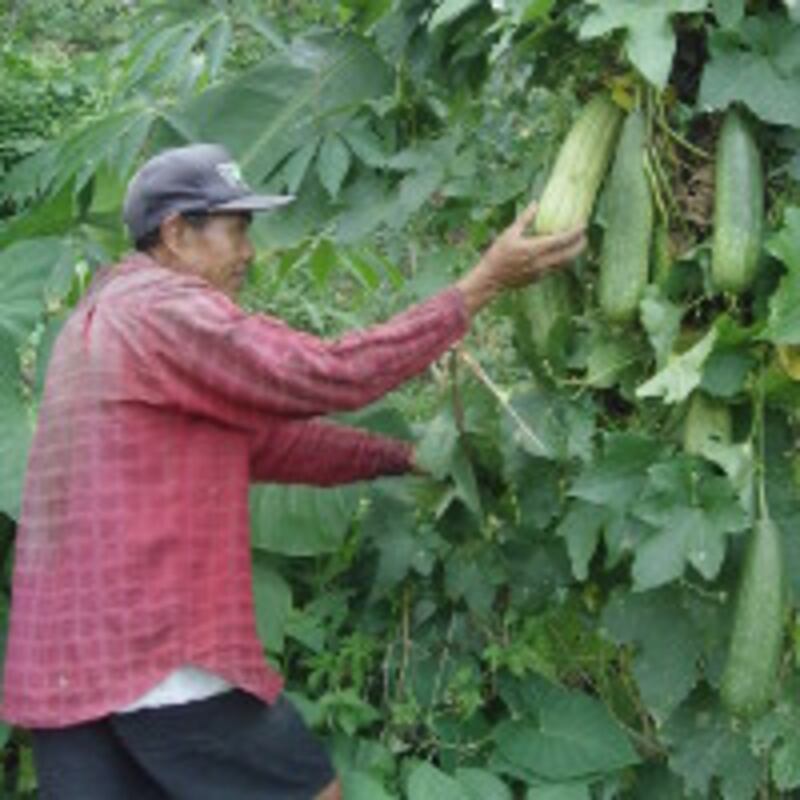Shortly after finishing university in his hometown of Surabaya, Indonesia, Heri Sutopo moved to Poso, in Central Sulawesi province, in 1995 to start his career. A few years earlier, he was visiting a friend on Ambon, in Maluku province, when a spasm of sectarian violence gripped that island.
Some 5000 people were killed and more than 700,000 displaced by Muslim-Christian violence on Ambon between1999 and 2002.
The religious violence – which also raged in Poso at the same time and claimed about 1,000 lives – became a rallying point for jihadist recruitment.
To this day, the memories of what he saw haunt him. But Heri also remembers the kindness of a stranger who saved his life.
Heri shared his story with BenarNews:

Not many Indonesians know why, how, or when the violence occurred, let alone what can be learned from the conflict.
I moved to a place known as a prosperous region: Gebang Rejo, Poso. As a Javanese, I know exactly what the words mean: “the gate to prosperity.”
Under Suharto’s authoritarian regime, it was not surprising to see villages, roads, streets, and stores with Javanese names. This occurred for various reasons.
First, the concept of development at the time was very centralized. Javanese occupied most leadership positions nationwide. There was no decentralization or local elections for district heads.
Second, there was the transmigration program, which moved people from densely populated regions to more sparsely populated ones, including Poso.
But I was not in this program; I moved from Java voluntarily. I was 21, freshly graduated from Airlangga University in Surabaya. I had a degree in engineering, and I was eager to pursue different experiences away from home.
I took a job at the regional water utility.
I thought the decision to move to Poso was the best one at the time. During the first several months in the region, I thought Gebang Rejo was very prosperous. Maybe because of the water that makes the region fertile and good for growing fruit, vegetables, teak wood and spices.
I stayed in an enclave called “Tanah Runtuh.” The name comes from abrasion on the river bank that caused some ground to collapse. But the area was little known until around 2007, when many jihadists started coming to the region.
The conflict started a few years after I moved to Tanah Runtuh.
In 1998, there was a small conflict in the Sayo village between Muslims and Christians. It was the holy month of Ramadan, and a few Christians were drinking alcohol and got drunk.
That angered some Muslims. After that incident, every conflict between Muslims and Christians resulted in violence.
A peak of the conflict was the attack at Silo Church, in Ambon, on Dec. 26, 1999. The largest Protestant Church in Maluku was burned the day after Christmas.
Nothing was left. Out of revenge, angry Christians killed nearly 800 Muslims at the Tobelo mosque.
I was there at the time. I was visiting a friend from Java who lived in Tobelo. On the way back to Poso, I saw several trucks full of angry people with guns. They started shooting indiscriminately. People in the village were panicked, screaming for help.
Some people from the truck stopped my car. They were wearing cross pendants and had guns.
The same group also spoke with four other men and two women. I had no idea who they were.
One of the attackers asked the man next to me, “Are you Christian?”
He said yes.
The attacker asked him several other questions I could not understand. Later I heard him say he was in Tobelo to visit family for a Christmas party. The attacker spoke to him for a few seconds and then released him.
My heart was pounding. I was afraid he would kill me because I am not Christian; I am Muslim.
The attacker pointed the gun at my face, and asked, “Are you Christian?”
I was sweating. I thought that was my last day. But before I could answer, the Christian man that was just released said, “He came with me.” They spoke for a few more minutes, then I was released.
I was crying.
I almost opened my mouth to say thank you. But I saw from his gestures that the man who had helped me was telling me to keep quiet.
He later introduced himself as “Dan.” He was probably 10 years older than me. We both walked as far as we could, and before we separated, he said, “Live in peace.”
He looked at me for a long moment and said goodbye.
I have looked for him for years but have never found him. But I hold on to the spirit of humanity that he exhibited. The spirit of tolerance. Doesn’t matter what religion you have, your life is valuable.
I couldn’t go back to get my car, there was no public transportation, but because I was afraid I kept walking until dawn.
After this incident, on Jan. 7, 2000, more than 100,000 Muslims held a protest in Monument Square in Jakarta, calling for jihad in Maluku.
My parents called me during this time and said that I must leave the region. They told me about massive recruitment and fundraising efforts to help jihadists in Ambon. They did it on the streets, in schools, pesantrens, local markets, everywhere.
I left Gebang Rejo in April 2000 because I saw that the conflict in the region was not going to end. I started a new business selling medical equipment here in Yogyakarta. I kept up my gardening hobby. Now I have two daughters and a kind wife.
The incident was nearly two decades ago, but I have strong memories of it. In my heart, I still hope to meet Dan to tell him “thank you.”
